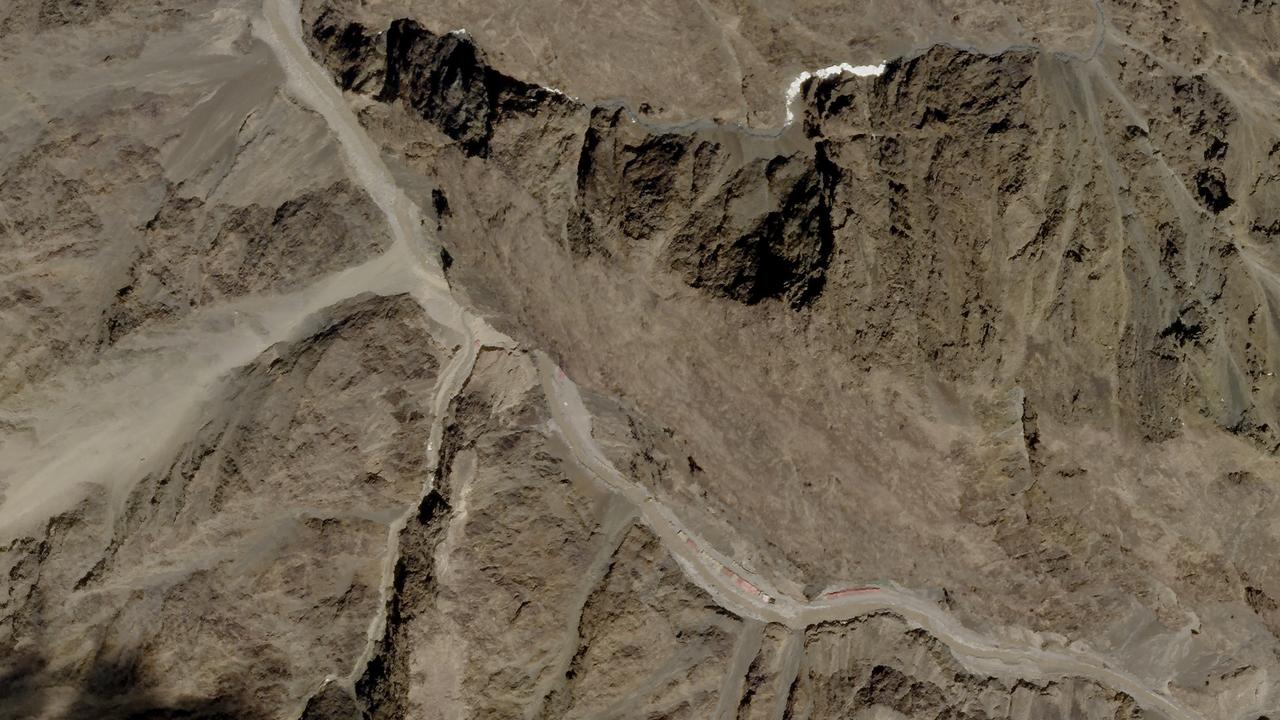
Editor's note: CGTN's First Voice provides instant commentary on breaking stories. The daily column clarifies emerging issues and better defines the news agenda, offering a Chinese perspective on the latest global events.
What if Indian and Chinese troops exchanged sweets at the border every day? What if instead of focusing on a few narrow disputes, the two nations put their energy into finding common ground and helping their people achieve prosperity? These questions arose after the soldiers guarding the two nations' mountainous frontier resumed the holiday tradition of exchanging sweets after a 20-month pause caused by the conflict in the Galwan Valley.
For decades, Chinese and Indian leaders have said border issues should not be the focus of ties between the world's two most populous nations. Instead, they agreed that both sides would be better served by focusing on the many areas where they shared common interests, most importantly, economic development.
But when promised economic growth faces difficulties and the domestic political situation seems hopeless, people look to outside enemies to scapegoat. Focusing ire on religious minorities is one time-tested tactic. Another is turning up the heat on a lingering border dispute to release frustration. This old historical pattern can be seen in today's China-India relations. Take, for example, the exchange of sweets at the border, which in sane times would be seen as a positive development. However, one political opponent of India's Prime Minister Narendra Modi called the gesture "capitulating" to Beijing and said it proved the Indian government is "weak" and "incapable of defending Indian territory."
Other voices piled on, amplified by the social media echo chamber.
This whole cycle of outrage is reminiscent of earlier calls to boycott Chinese products. The difficult, incremental and tedious work of effective governance holds little attraction compared to the inflammatory allure of grievance and anger, as we have unfortunately seen in many countries in recent history. In the United States, for example, actual governance has been abandoned in favor of the politics of division. Holding the politically correct stance on mask wearing, global warming or a border wall has become far more important than legislating or crafting effective policy.

A satellite image of the Galwan Valley in Ladakh, June 9, 2020. /Reuters
A satellite image of the Galwan Valley in Ladakh, June 9, 2020. /Reuters
India is showing dangerous signs of going down the same road. International policies aimed at advancing the interests of India are being hijacked by domestic partisanship aimed only at crushing the opposition party and gaining political power without regard to India's greater interests. The complex and multifaceted relationship between India and China is at risk of being boiled down into a few hot-button issues.
Bashing China and all things Chinese may soon become a necessity for political survival in India. This is a dangerous place to be and can cause real harm to the people of India. For example, nationalist wishful thinking triumphed over economic pragmatism when India decided not to join the Regional Comprehensive Economic Partnership (RCEP) that came into effect at the beginning of 2022. Indian media have widely cited fear of China's economic influence as a major reason for rejecting the deal.
India's decisions to ban Chinese apps and suddenly investigate several Chinese companies are another example of a nationalist gesture that will only hurt ties and reduce trade. Despite the tension between India and China, trade volume between them in 2021 broke a new record by reaching over $100 billion. This shows the vast untapped prosperity that could be created if the two sides focused on cooperation instead of conflict.
In the short term, it is unrealistic for either side to expect the other to suddenly give up their border claims and cede disputed land. This does not mean the two sides cannot get along. Like two neighbors disagreeing over the placement of a fence, it merely means that they must show the wisdom to focus their energy on areas that can bring prosperity and concrete benefits to both sides.
The danger that India faces is that swelling national pride fueled by partisanship will take on a life of its own and become an end in itself, leaving in flames the opportunity for building prosperity by cooperating with China.
In the end, India will only hurt itself if it chooses to exchange bullets over exchanging sweets.
(If you want to contribute and have specific expertise, please contact us at opinions@cgtn.com.)

